|
We are in the midst of a polarizing political season. Facebook and Twitter are full of very angry people trying to convince others to agree with them, or more often crititizing those who don't agree with them. People shout and yell then they feel good when they get likes and shares which bolsters their viewpoint. They forget that the platforms’ algorithms show users what they want to see which causes further polarization. I make a habit of following others whom I do not agree with in order to get a broader perspective of the issues. I constantly go back to God’s Word as my foundational belief before proceeding with any belief. Although this has been a long time concern, I have been noticing it growing increasingly worse. Individuals who may agree with a group on an issue are being attacked for not being zealous enough or for deviating from the party line. The concern is that these people who feel marganilized and attacked will fail to participate in the voting process at all. Based on the conversations I’ve had with many people lately I’ve compiled a list of things that make me say, “You lost me,” when I see your political post. These are things that make my respect for people’s viewpoints diminish and weakens future ideas you promote. Please read these and share if you agree. I don’t think I’m alone here. You lost me when . . .
So what can you do to persuade others to agree with you? Well, in all honesty, in some cases, nothing. Some people, despite your best efforts and the best arguments, will never agree with you. So don’t waste your time arguing with them. Move on. If you have to get along with them because they are a co-worker, neighbor, family member, etc. find common ground and meet them there. However, there are people searching for answers and looking for direction. Here are some ways that you can influence them.
So, there it is. I have been purposefully vague regarding specific candidates. My purpose in discussing politics isn’t to debate the 2020 election but to encourage others, particularly believers in Christ to do so with compassion and critical thinking. Now more than ever it is important to be a light in the darkness of this fallen world.
1 Comment
In just a few days Hamilton: An American Musical will be debuting on Disney+. When I first heard this news I was elated. I’ve seen the stage production in Chicago twice and listened to the original cast recording many times. I wanted to take the time today to tell you a little about it before it airs on a streaming service with so much content for children. If you have Disney+, you know it’s great. The vault has been opened and users have access to (almost) all the movies Disney has created. That said, it is important to keep in mind that not all movies on the service are appropriate for children. Some, like superhero movies, are violent and not appropriate for small children. Which brings us back to Hamilton. As I said before, I thoroughly enjoy the musical but always shudder when I see young kids listening or attending. Here’s why. There are several objectionable elements that make the musical inappropriate for young kids.
He concludes that he wrote his own successes in the past and decides to do it again. This time his writing exposes his family to shame and he finds that he can not write himself out of every situation. Later in the song “It’s Quiet Uptown” Hamilton receives forgiveness from his wife and we see a beautiful example of redemption. I’ve heard immature listeners quote “Hurricane” as a type of mantra but that lacks the understanding of its place in the story.
So, there are the negatives. With all that you may be saying, “Um, Edy, why are you a fan of this show?” Yes, there are negatives. But there are many parts of this musical that lead me to rank it up with my favorites including The Phantom of the Opera and Les Miserables.
I'm currently reading a book called Oh, Ranger! It is a collection of stories and essays written by National Park Rangers. I was moved by an essay written by Shelton Johnson, an African-American National Park Service ranger. While looking through photographs at Yosemite's research library he found a photograph of 25 African-Amerian soldiers who had protected the land from ranchers who were grazing their animals on park land. Their names are not recorded but these soldiers protected Yosemite until they were relieved by another regiment who noted their excellent service. Often African-American men would choose to serve in the military because it was one of the few jobs that provided a pension available to them. That said, they still failed to receive proper respect. Ranger Johanson wrote them a letter thanking them for their service and for allowing himself to be caught up in their story. I found the ending particularly poignant: "Thank you for clearing the trail that I followed 100 years later. You cannot imagine how your passage has made my journey infinitely easier, as I hope mine will be for those who follow." My heart hurts when I read stories about violence against others because of how they look. These stories go back for hundreds of years and involve all sorts of people. They are sad, dark, and full of hate. Do you hate these stories too? Perhaps, like those soldiers who protected Yosemite, we can do some things to make the journey of those who follow us a bit easier.
If you ran yesterday and posted about in on social media, good for you. Now keep running. Keep moving. Call someone in an elected office. Create a petition. Volunteer to help others. Look each person you meet in the eyes and see them as a life created for a purpose. One of my favorite preschool memories is Jay asking Maddie what color her new baby was going to be, brown or white. Maddie, whose mom was very pregnant, was the only fair-skinned child out of my 10 students. She looked around the room and said, “I don’t know, probably brown.” They honestly didn’t know why our skin looks the way it does. It appeared to be about statistics to them and asking about it was as casual as asking a friend to pass the playdough. Aging robs us of the innocence of youth but it doesn’t have to rob us of our curiosity. Below I’ve provided a list of books that have helped me get into the lives and experiences of those whose heritage I do not share. True these are fiction, but the experiences of the characters are very real. I, like Ranger Johnson, thank those who have come before me. I come from a line of curious and compassionate people. My wish is that my life will pave the way for future generations to share God’s love with the world as I try, yet often fail, to do. Copper Sun by Sharon Draper
Elijah of Buxton by Christopher Paul Curtis The Watsons Go to Birmingham, 1968 by Christopher Paul Curtis Stella by Starlight by Sharon Draper Finding Someplace by Denise Lewis Patrick Chains by Laurie Hase Anderson Brown Girl Dreaming by Jacquline Woodson Roll of Thunder Hear My Cry by Mildred Taylor A Long Walk to Water by Linda Sue Park Underground by Jean Ferris I remember checking out videos from the library and after finishing them removing the video from the VCR and putting them in the rewinder. To this day, I can't hear, "Be kind" without thinking rewind. Today is World Kindness Day according to the Facebook posts and my morning greeting from Alexa. I am tempted to research how long World Kindness Day has been a thing, who started it, and who is celebrating it, but instead, I’m going to refrain from that extraneous research and go with it. On my recent trip to Seneca Falls, New York, I learned a great deal about kindness and the great impact ordinary individuals can have on the world around them. We arrived in Seneca Falls after sunset. The small downtown area was decorated for Christmas, a gentle snow was falling, and the church bells were ringing out “How Firm a Foundation.” I told my sister that I was reminded of Bedford Falls, the town from It’s a Wonderful Life and she immediately agreed. As we were checking in, the hotel clerk gave us a list of area attractions including the It’s a Wonderful Life Museum. He explained that Seneca Falls is the town that Bedford Falls is based on. Our days there included a visit to the Women’s Rights Historical Park, Elizabeth Caddy Stanton’s home, William Seward’s home, and Harriet Tubman National Historic Park. In each of these places, we noted the influence of major figures like Anthony, Stanton, Seward, and Tubman, but we also noticed the courage, conviction, and compassion of those whose names will most likely never be included in a national park or museum. There were countless women who stood up for the rights of others. As I previously wrote, the subject of women’s rights can be controversial, but here we are talking about rights such as property ownership and the right to remove themselves and their children from a dangerous and abusive husband. Women who were not destitute or in danger took upon them the fight that the others in those situations didn’t have the ability to fight. William Seward was a remarkable man who served with Lincoln as Secretary of State but was responsible for doing so much more. One act stood out as particularly significant during our visit. He sold land to Harriet Tubman including a home that she and her parents lived in after their escape from enslavement. This was after the Fugitive Slave Act and before the Emancipation Proclamation so his action was in direct defiance of federal law, but he believed that it was the right thing to do. Harriet Tubman’s life was full of her kindness to others despite being enslaved and mistreated. Often the word kindness invokes a soft-spoken, gentle manner, but Harriet was kind in a powerful way. She went back into the South thirteen times to rescue her people, ignoring her own safety. She also led troops into combat and freed 750 men, women, and children during a US military action. Retirement was anything but restful. She opened a home for the elderly on her land because the other home for the elderly in Auburn was for whites only. Her home was for everyone. Harriet Tubman exemplified kindness in action. Our last stop during the trip was at the It’s a Wonderful Life Museum. There we learned the beautiful story behind the movie. Frank Capra stopped in the town after reading the short story which would become the movie. There, while receiving a hair cut from an Italian immigrant, he heard the story of Antonio Varacalli. In 1917, Antonio was a young man working to save up money to bring his family over from war-torn Italy. He watched a woman jump off the bridge in an attempt to commit suicide and jumped in to save her. He succeeded in saving her but lost his life in the process. The town rallied together and collected enough to bring his family to the area. Capra changed the ending of the movie to include the town rallying around George and set the movie in a place that looked like Antonio’s town. Acts of kindness can be small or large. They can be quiet or they can be bold. This “World Kindness Day” rewind your thoughts to some of the people who have influenced your life. How has their influence changed you? As Clarence observed, “Strange, isn't it? Each man's life touches so many other lives. When he isn't around he leaves an awful hole, doesn't he?” Today, don’t leave a hole. Get in there and influence someone. Maybe a child, maybe the person behind you in line at Starbucks, maybe a future generation. Capra modeled the bridge in the movie after this bridge in Seneca Falls.
I’m a huge fan of Far Side by Gary Larson. If you aren’t familiar with it, it’s a syndicated comic that was usually one pannel. The figures are distorted and the humor is quirky. One that has stuck with me was titled “Classic Conversation Stoppers.” The panel is divided into four squares and depicts four men talking to guests. Each of the men is saying something that is guaranteed to end a conversation. My favorite is the guy saying, “‘Contagious? Contagious?’ I asked my doctor. ‘Realy contagious,’ he tells me.” Insert awkward pause. Have you ever experienced something like this? You say something and people respond with awkward silence. Last year I created a presentation about World War I to commemorate the 100th anniversary of the end of the war. After completing that I decided to work on a presentation commemorating the 100th anniversary of the 19th amendment to the Constitution, which grants women the right to vote. I thought World War I had been tricky to investigate, but nothing could have prepared me for the mess that I’ve found during my study of the women’s suffrage movement. In my research, I’ve studied Biblical anthropology - the study of humans as they relate to God, the history of women in the United States and Western Culture, and the philosophical foundations of the feminist movement. Phew! I’ve read about Upity Women of Medieval Times, Wild Women of Michigan, 12 Extraordinary Women of the Bible. I’ve read The Women’s Hour, Roses and Radicals, and (I truly loved this one) Cinderella Ate My Daughter. Relating to business I’m reading Lean In and, as a counterpoint, Lean Out. I’m intrigued and immensely enjoying this research, but all these viewpoints and counterpoints leave my brain a tangled mess. When my thoughts become tangled, I find the best method of unraveling them is talking. I’ve come up with some of my best party planning ideas when talking to the cashier while at the supermarket checkout. (Probably why I’m not interested in curbside pick up or grocery delivery.) In the past few months, I’ve learned that the phrase, “I’m studying the history of women’s rights,” is a classic conversation stopper. People become uncomfortable and shift around looking for an out. One person abruptly stated they had to leave and ran away. I think most people are afraid of getting involved in a controversial conversation because of the tension in our current culture. Viewpoints collide and emotions run deep, but I believe that this is a very important and vital study. I keep typing and deleting as I’m trying to explain further, but I’ll never be able to fit everything I want to say in this post. I’m going to state a few truths I’ve discovered, and leave it at that for now.
That’s all I’m going to say about this for now. I can already feel the discomfort and I can hear the, “Well, I don’t know what she means by that,” running through your mind. Feel free to comment below or message me if you want to talk more about this and look for future posts about women’s rights. Wait! Where are you going? I need someone to talk to about this! Tomorrow my sister and I head out to visit the Women’s Rights National Monument. It is in Seneca Falls, New York and is the sight of the first Women’s Rights Convention where the suffrage issue (women voting) was first publically proposed. As I research this topic, I feel that visiting this monument will help me gain a deeper perspective on the issue and the time spent with my sister will help me unravel my thoughts. Follow along on my Instagram (@edy2207) story for an inside look at our adventure.
The news reports statistics that demonstrate an increase in cancer and heart disease. Desperate to prevent and cure these, we spend ample resources protecting ourselves and our loved ones. We take supplements, exercise, buy organic, and spend fraught filled hours researching the safest household products. Could my water bottle be killing me? Yet even with all this, careful prevention people die of heart disease. People still get cancer. Each year over 600,000 people die of each, which amounts to more than 1.2 million deaths per year in the United States alone.
I share these statistics because I want you to know that I understand the devastating effects of diseases. I have friends who are fighting and suffering through these and know many who have lost their battles. What I would like to offer today is some perspective and a dose of hope into the devastation and brokenness of modern diseases. One of my favorite genres to read is medical mysteries and histories. My three favorite examples of these are Quakery: A Brief History of the Worst Way to Cure Everything, The Royal Art of Poison: Filthy Palaces, Fatal Cosmetics, Deadly Medicine, and Murder Most Foul, and Get Well Soon: History's Worst Plagues and the Heroes Who Fought Them. My family is often horrified by these books, but I just can't get enough. Anyone who reminisces for times gone by and wishes they could live in the olden days should be slapped and forced to read any one of these. I say that jokingly, but our minds are skewed by watching historical dramas on film and wondering at the beauty and ornateness of palaces and castles. Sickness reigned supreme and in our days of nervousness over how many and which types of supplements should we be taking, we forget just how bad life was. Let me explain.
I look forward to a future free from death and misery, but we aren't there yet. Because of sin, we will all die of something. The hope I offer is that by God's grace in preserving my life and your life through medical science and investigation He has given me more time than those who lived before. We are now living longer and enjoying greater health than that of any other time in history. Give thanks for the health (no matter how little) you have and praise God for his gift of salvation! As I write this I am sitting in front of what is known as the "Rosa Parks Bus." It is the bus that the famous incident involving Mrs. Parks refusing to give up her seat took place. In my research on the American Woman Parks' name has come up several times. Let me back up. This week Logan and his buddy Derek are participating in Day Camp at the Henry Ford. The Henry Ford is like Disney World for history nerds and is a must see. The Henry Ford is made up of multiple institutions the main two being the Museum of American Innovation and Greenfield Village. When Henry Ford created them his goal was to tell history from the perspective of the average American. History is about presidents and important figures, but it's also about the innovations that impact our every day lives. Both the Village and Museum are dedicated to celebrating those innovations and honoring our nation's history. So, back to the bus. In just the few minutes it's taken to type this, almost 50 people have climbed on and off the bus. A docent inside tells the story of that December day in Alabama and points out the seat that Parks refused to give up. The children inside excitedly vie to sit in the exact spot then skip off happy that they've experienced a part of history. There's even a Scandinavian tour group with professional film equipment filming about it. I have no idea what they are saying but it’s interesting to watch them explore the history of our country. In my research about American women, I've come across Rosa Parks several times. Each time I've read that she is brave because she sat. When I read this it's felt like something has been missing. There were several people before Parks who were arrested for refusing to give up their seats which made me wonder what was different about their story. They sat. Why don't their names go down in history? Oddly enough the answer came when I was reading the book The Power of Habit: Why We Do What We Do in Life and Business. In the chapter referring to habits of societies, Duhigg explains that Parks was a unique individual because of her character and her community involvement. "Parks' many friendships and affiliations cut across the city's racial and economic lines. She was the secretary of the local NAACP chapter, attended the Methodist church, and helped oversee a youth organization at the Lutheran church near her home. She spent some weekends volunteering at a shelter, others with a botanical club, and on Wednesday nights often joined a group of women who knit blankets for a local hospital. She volunteered dressmaking services to poor families and provided last-minute gown alterations for wealthy white debutantes." He goes on to connect the facts and mentions that the previous riders who refused to move were arrested, but nothing came of it because they were unknowns, yet when Rosa Parks was arrested it caused a ripple through the community. She had invested her time in the community and that community came to her support. But all that community doesn’t explain my discomfort with celebrating Rosa Parks for "sitting." Duhigg, after detailing Parks' community involvement, explained that the former leader of the Montgomery NAACP and a white lawyer named Clifford Durr bailed her out of jail. Community leaders had been looking for a case to challenge bus segregation and with Parks' sterling reputation they believed they had found a worthy cause to take to the courts. Parks' husband was initially opposed to the idea because he knew the danger she was putting herself in. Her husband's warning, "The white folks will kill you, Rosa," was not an empty worry. Threats of violence and death were common for those who dared to alter the status quo, but despite the possible danger, Parks allowed her case to be the rally point for the protests and the boycott. Both she and her husband lost their jobs and received multiple death threats. Yet, she didn't give in and she allowed her case to move through the courts. Eventually, they moved to Detroit hoping to start over after losing so much. There! There it is! Now, I am beginning to understand what was so remarkable about her. She shouldn't be remembered as a woman who sat. She should be remembered for 1.) Her kindness and community involvement. 2.) Refusing to move despite knowing the possibility of arrest or physical violence. (I was told by the docent that the bus drivers often carried clubs or guns to enforce the rules.) 3.) Standing and allowing her arrest to be used in the court case that changed a city and became a major event in the Civil Rights Movement despite the costs. Too often we relegate people's stories to a paragraph and forget that their lives are as complicated and as deep as our own. Rosa Parks' story is one of compassion, community, and courage. She didn't receive the notoriety she has today until much later in her life. In our culture of instant gratification, it is important to share that standing up for something and being remembered rarely happens for those who don't have a depth of character. We need to remember that standing for what you believe in is not easy and will likely not lead to fame and success, but doing something because you believe it is the right thing to do may just change the world. Rosa Parks visited the Greenfield Village in 1992. These photos are of her at the Mattox House.
What flag are you waving today? Here in Michigan, we wave flags during college football season that define our loyalties. During a fall, drive through a suburban neighborhood you will see houses proudly waving the flag of the University of Michigan, Michigan State, or some other Michigan school which claims their allegiance. Every once in a while you will encounter some brave soul who is bold enough to wave the hideous white and red of Ohio State. Ugh, they're the worst! Those college football weekends are fun. They represent a century-old tradition of watching a great game and rooting for one's team, but recently, I've noticed a trend in flag-waving that I find disturbing. Drive through a neighborhood or look at flags waved in stores and you will see a myriad of flag variations. There are rainbow themed flags representing LGTBQ citizens, there are thin blue line or thin blue and red line flags representing the police and first responders, there are half-rebel flags representing the "rebel nation," and the list goes on. With the recent controversy, there are people wearing and displaying the "Betsy Ross flag" to show their dislike for Nike and the values of their company. But what is the purpose of a flag? Back in the day when I was engrossed in learning about the Civil War, I read a lot about flag bearers. They would carry the flag of their regiment and men would even throw down their rifle and pick up the flag should the flag bearer fall in battle. Their flags were important for both morale and communication. The flag gave them something to rally around and they would give their life for it. (Read more about this here.) If you question the importance of flags, watch the TED Talk at the end of this post. It is one of my absolute favorite talks ever. Roman Mars talks about city flag design and after watching no one can claim to be ambivalent about any flag. Flags are unifying and they draw people together. So let's talk about today. Today is Independence Day. It's a day to celebrate the United States of America. You aren't happy with her currently? Guess what? That's the best part of the USA. We have rights secured by our constitution that guarantee us the right to free speech, press, religion, and peaceful assembly. Don't like what you see? Do something about it! I was recently contacted by a friend about a petition drive she is working on! Love it! I am not able to run it myself, but I will support her, sign, and encourage others to do so as well. That is what made us unique so long ago. We are a government of the people, by the people, and for the people. We can debate and rage, but we must come together and unite on the fact that we are Americans. Lincoln, quoting the Bible, said, "A house divided against itself cannot stand," and those words are true today. Today, my house is intentionally waving the current stars and stripes. We will wave the flag that represents us all. Let's rally around the flag and be proud of being Americans today. Are you excited about summer break being right around the corner? I am. (Notice my excessive use of exclamation points.) I love summer. I'm not just talking about the season itself, although I do love that - I'm talking about the long break from school. Summer is time to take a break from school. Summer is not the time to take a break from learning. Summer is the perfect time to learn without the pressure of tests and the responsibility of homework. It's the perfect time to visit museums and parks. These experiences are extremely important because by exploring and experiencing, children lay the groundwork for their classroom experience. Here’s an example. At some point in their science education, your child will learn about the life cycle of a frog. I remember learning about this as a student, but I didn’t have to memorize it as a student. Why? Because there was a ditch in the front yard of the house I grew up in. Every year frogs would lay eggs. Once the tadpoles emerged we would scoop them into buckets and check their progress. It was play. Gloriously messy, sometimes muddy play. But then when I got to science class the life cycle was something I knew. I had watched. I had observed. The teacher had new information that I didn’t already know, but she had a shelf to place new information onto. My existing knowledge allowed my understanding to be deeper and more lasting than the student who had never seen a tadpole. Often our school system becomes adversarial. Students work hard NOT to learn the information the teachers are tasked with the responsibility of forcing the materials into them. This push back doesn’t usually happen until middle and high school, but the mindset begins as early as elementary. We make a critical mistake when we equate school with learning. Why? School does not have a monopoly on learning. It CANNOT have a monopoly on learning. This is NOT to say that students don't learn in school but when we limit learning to school we limit our children’s mindset and limit their growth. Learning should be a lifelong pursuit. Adults calling themselves a life long learner has become popular. Why can't we let kids embrace that too? Oddly enough when I say stuff like this is it is usually the adults who tell me that kids don't want to learn, NOT their kids. This disturbs me. Learning is awesome. It is fun. It is something that the mind embraces and takes pleasure in. The brain releases a dopamine response when a new fact snaps into place. (Imagine that feeling when a puzzle piece clicks into place.) When your brain has an “ah-ha” moment your brain releases pleasure hormones. When kids make a connection between something they learned in school and something they already know, their brain releases a “reward” for their effort. Not interested in "teaching" your children this summer? Afraid that you will get stuck or not know what to say? Here’s an example of the type of learning and teaching I am talking about. Many kids have had the experience of trying to connect toy trains. Sometimes the trains won’t connect. They may get frustrated, but they usually figure out that the key to success is to turn the train around. It works! Cool now they can play. When they get to science class and learn that magnets have a north and south pole and connect it with their memory, their brain rewards them for that connection. Those students who have been trained to recognize the moment a connection happens can gain an even greater response. Training to recognize this is as simple as noting when it happens and cheering. Older students who are interested in Greek Mythology will love making connections about their secular reading and the experience of Paul in the book of Acts. Read Acts 17:16-34 (Paul’s sermon from the Aeropagus.) Those Paul is speaking to believe in and worship the gods we read about in stories. In verses 24-25 Paul makes specific reference to the stories of mythology. “The God who made the world and everything in it is the Lord of heaven and earth and does not live in temples built by human hands. And he is not served by human hands, as if he needed anything.” The Greek gods constantly needed help from heroes who were demi-gods. Without Heracles, Jason, and Theseus the gods would be in desperate straights. Paul is remarking that the one Creator God who is over ALL, not just the wind, seas, seasons, medicine, etc., doesn’t need human heroes to save him. He is omnipotent. When students connect these two things (the Bible and Greek mythology) they get very excited and the discussion is usually a lively one. Even students who say they “hate” learning take pleasure in learning about things that they are interested in. Summer and other breaks from school are the perfect time to leisurely explore their own pursuits. I recommend exposure to a wide range of activities that will eventually coincide with their classroom learning. Some areas are richer in learning opportunities than others. I have been working on my Southeastern Michigan page and hope to add several more places this summer. Check it out and comment with places you would add. There is no way that you will be able to experience everything that your child is going to be learning about, but you can participate in a variety of things that will set them up for future success. Next week I will release our full summer bucket list. We are planning on visiting several places that are recognized by the National Park Service as the Motor Cities National Heritage Area as well as River Raisin, a National Historic Battlefield. (All within an hour or so of our house.) Subscribe using the form below to follow our adventures and learn more about fun activities that will help your child's summer be both fun and constructive. A Note About Video Games: Learning isn’t the only way to receive a dopamine response from the brain. Video games flood the brain with a dopamine response, but rarely are real skills gained and often the cost/benefit ratio is out of proportion. Alarmists love to report that kids are addicted and scare parents with statistics about the dangers of gaming. This sells stories and gets people to click, but it isn’t necessarily true. Video games aren’t all bad and can be a good way for families to have fun together (Wii) or kids to learn about the challenges of running a city (Sim City). Think of it this way - taking the family out for ice cream can be a fun way to bond and have fun. It’s a good thing. Eating ice cream for breakfast, lunch, and dinner is excessive and detrimental to your health.
Confession: I have been working on this post for a few days now. I planned to talk about the word hubris, and maybe I will someday, but after reading and writing for several hours, I have decided to go in a completely different direction. Has that ever happened to you? I thought I knew what I was writing about but as I studied and thought I realized that the material was diverging from my original thoughts. This feeling, though somewhat discombobulating (another great word), is what I love about learning. I was not incorrect in my original direction, but the opportunity to learn something new took me down an intriguing path. Come walk with me.
My grandfather was an artist by trade and along the way, he collected some interesting books about art. One of them is called Shepp's Photographs of the World. The copyright is listed as 1892. The good old days of 1892. Everything was better back then. Well, maybe not everything. There were no antibiotics. The country treated people of color with the understanding that they were lesser citizens. The life expectancy was 48.4. But it was an exciting time. Things were looking good for the United States. Grover Cleveland was fighting the spoils system and we were had not yet fought in the Spanish-American War so there was no need to, "Remember the Maine." The country was healing from the Civil War and figuring out a new path as a united nation. Rapid changes in the world filled people with wonder and optimism. The Bessemer process had revolutionized the steel making process and railroads were connecting people in ways that had previously seemed unimaginable. The publication date is almost the end of the Gilded Age, which I just learned because I Googled it, was named that because it looked like a Golden Age, but things underneath were less than perfect. (Thank you Mark Twain and Charles Dudley Warner for that excellent description.) Side note: I had learned that it was the Gilded Age but never grasped the meaning behind the term. Interesting. Today's Word: Limn One syllable. Pronounced [lim]. verb. Defined in the OAD as to depict or describe someone or something in painting or words. As I said, this word wasn't my first choice to write about, but as I was writing about Shepp's Photographs of the World I was quoting from the preface and came across this word which I had never taken the time to look up. Let me continue with my explanation about the book and you'll see the word come up in context. My favorite part of Shepp's Photographs of the World is the preface. Most of the book is photographs of monuments, cities, and natural landmarks. There are some photos of famous works of art. The premise as explained in the preface is that few people will ever be able to travel around the world and see all the wonders it has to offer and even if they can travel, they won't make it to all the places to see all the things. ". . . a trip around the world, in the literal sense, would reveal to the traveler only a portion of its scenes of interest. Many of its greatest wonders lie off the line of circumnavigation and require to be reached by special journeys. To really see the world, one must explore it, seeking out spots to the north and south at every stage of the voyage " They mention that a newspaper reporter outdid "Mr. Phineas Fogg's famous flying voyage of eighty days," but continue on saying that a trip at this pace leaves little time for any sightseeing. The preface continues, "Fortunately for the public, the perfection of the art of photography . . . have rendered it possible to bring the whole world home to anyone's door in a manner heretofore unknown. The panorama of the world has been limned by the sun to such an extent that there is no longer an excuse for our remaining in ignorance of its most inaccessible or remote marvels. We can surround ourselves, in our own homes, with the scenes which intrepid and adventurous explorers have taken for us, often at the cost of their lives, and visit the great historic sites, the centers of strange civilizations, as well as the habitations of barbarous and savage tribes, without moving from our own firesides." Since first reading it, I've loved the part where it says "the perfection of the art of photography" because this is 1892. Photography was far from perfected. But today I noticed that word limned and I realized that they are saying that the sun has allowed for the depictions of these great places. The sun. Because photography is light [photo] writing [graph]. Aaaaahhhhhh!!! Isn't that so cool!?!?! Looking through the book I see recognizable monuments, but the descriptions are no longer accurate. For example, on page 159 the Eiffel Tower is described as "being the loftiest monument in the world." In the photo of the Arch de Triumph, there is no Tomb of the Unknown Soldier because that wasn't built until the Great War. The Brooklyn Bridge is described as "by far the largest suspension bridge yet constructed". After perusing the pages and exploring from my house, I remember the admonishment in the preface to the readers of 1892 that there is no longer an excuse for remaining ignorant of the world around them because photography made the world accessible. If the 1892 audience has no excuse where does that leave the 2019 audience? I don't believe that photography or cinematography have been perfected, but they are beyond impressive. Most of us have access to the world at our fingertips. (If you have access to Google Earth then this is you.) There are also excellent documentaries and shows about the world that allow us so much access to the incredible and awe-inspiring. So as I close today, I give you (and myself) the same admonishment the author gave in 1892 - Surround yourselves with scenes which intrepid and adventurous explorers have taken for you. Visit the great historic sites, the centers of strange civilizations, as well as the habitations of barbarous and savage tribes, without moving from your own home. Travel is wonderful and I encourage it, but a lack of funds to travel does not limit the amount you can expose yourself to the magnificent world around you. |
"A jack of all trades is a master of none, but oftentimes better than a master of one." Archives
May 2020
Categories
All
|
AdventuresGet in Touch |


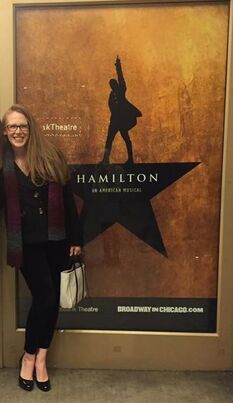
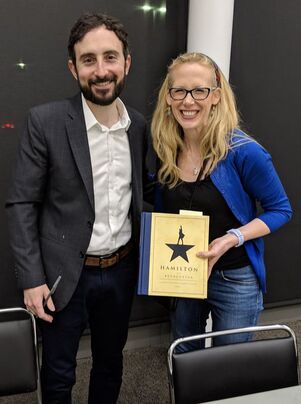
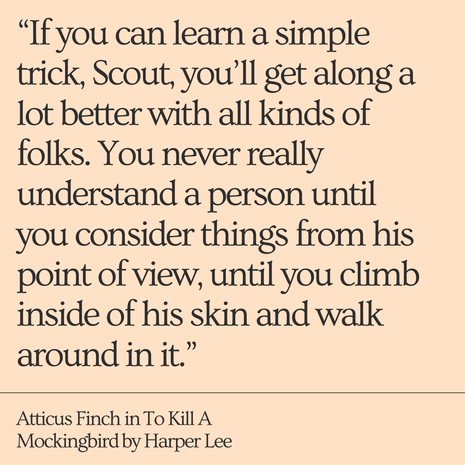

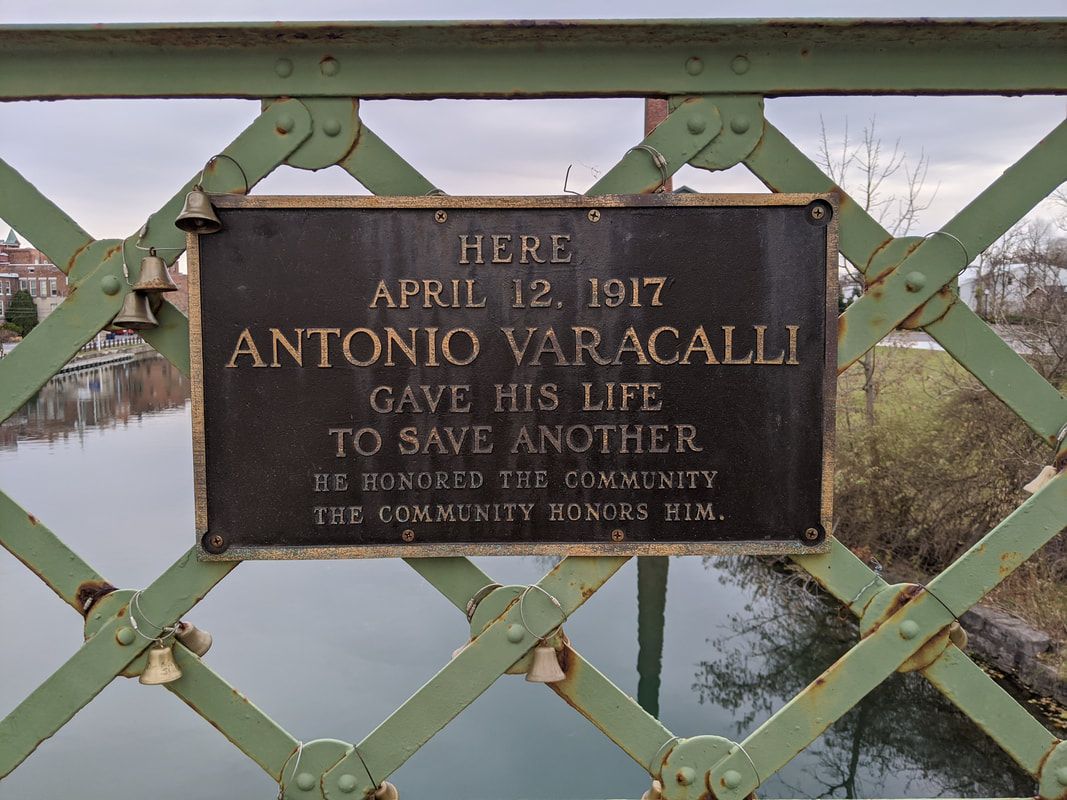
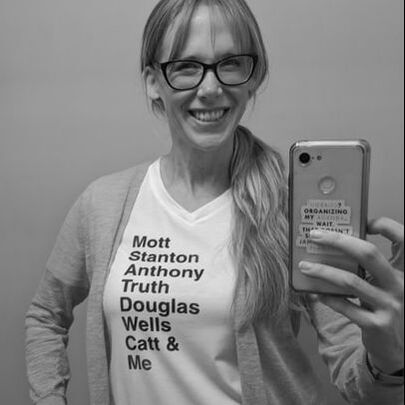
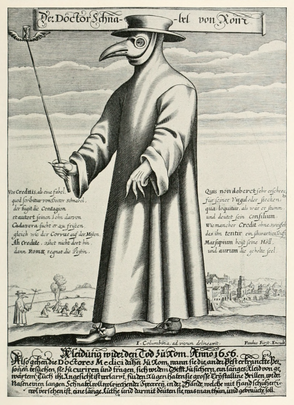
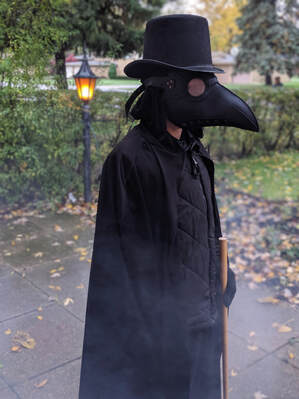

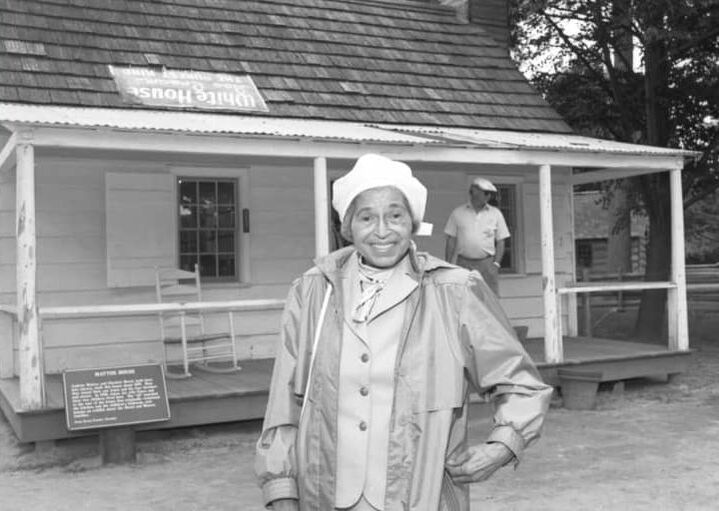
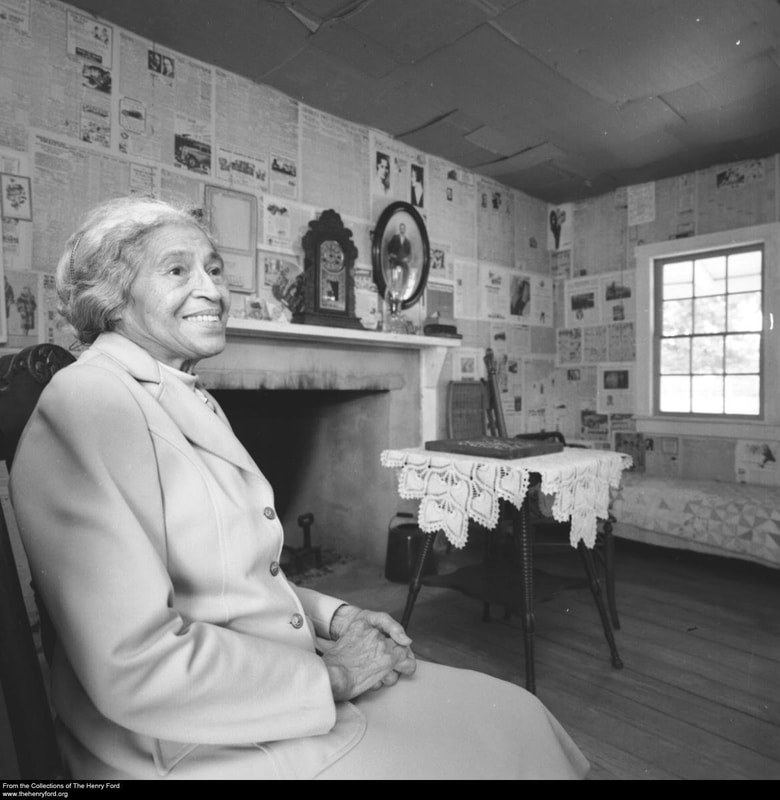


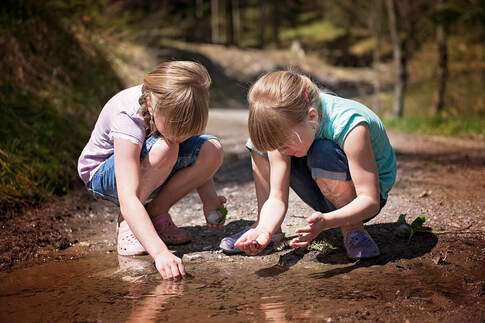


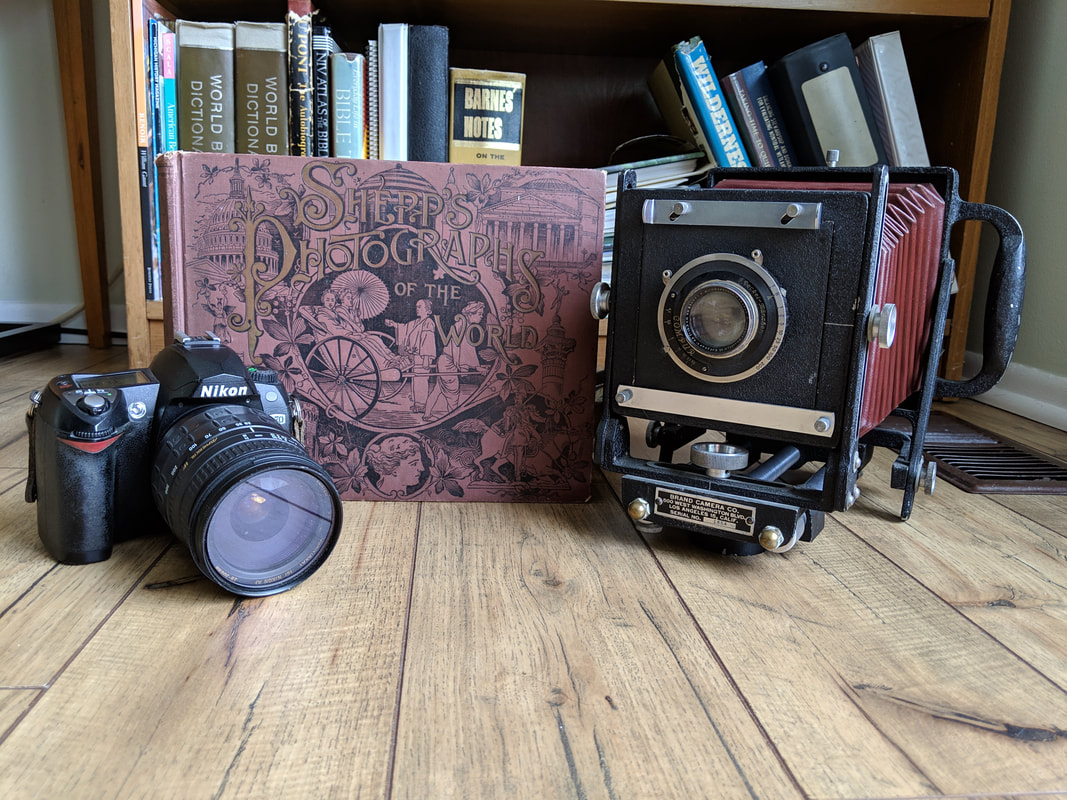

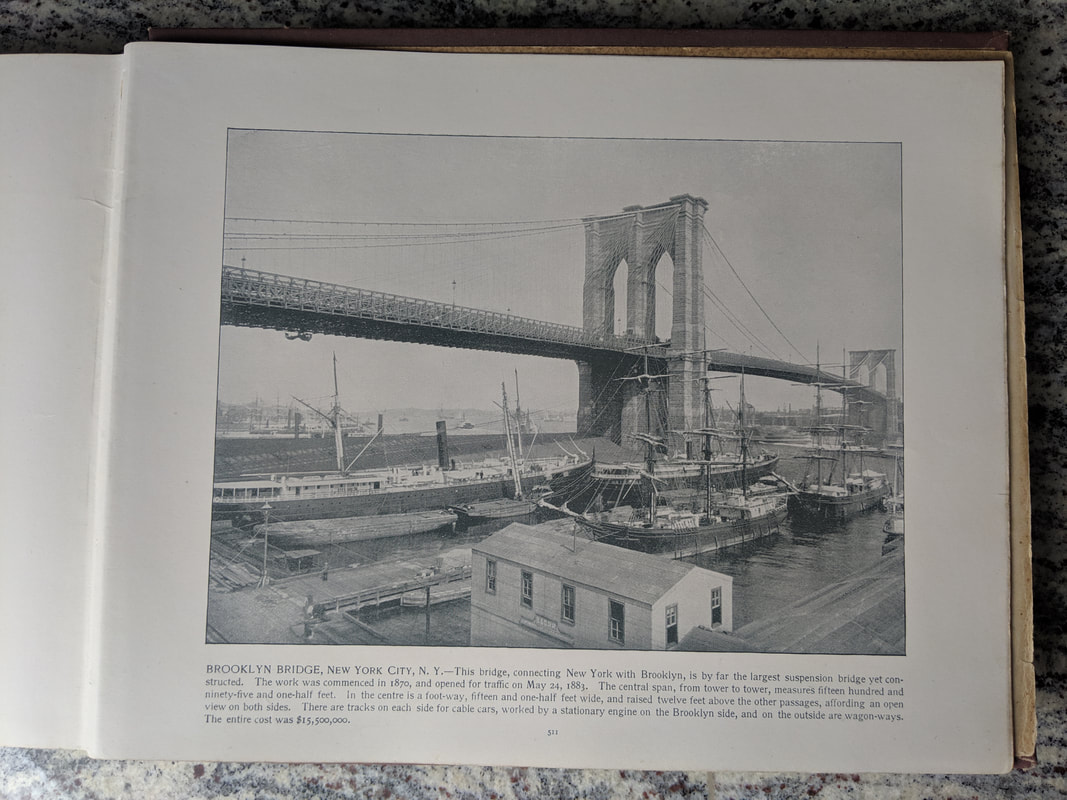
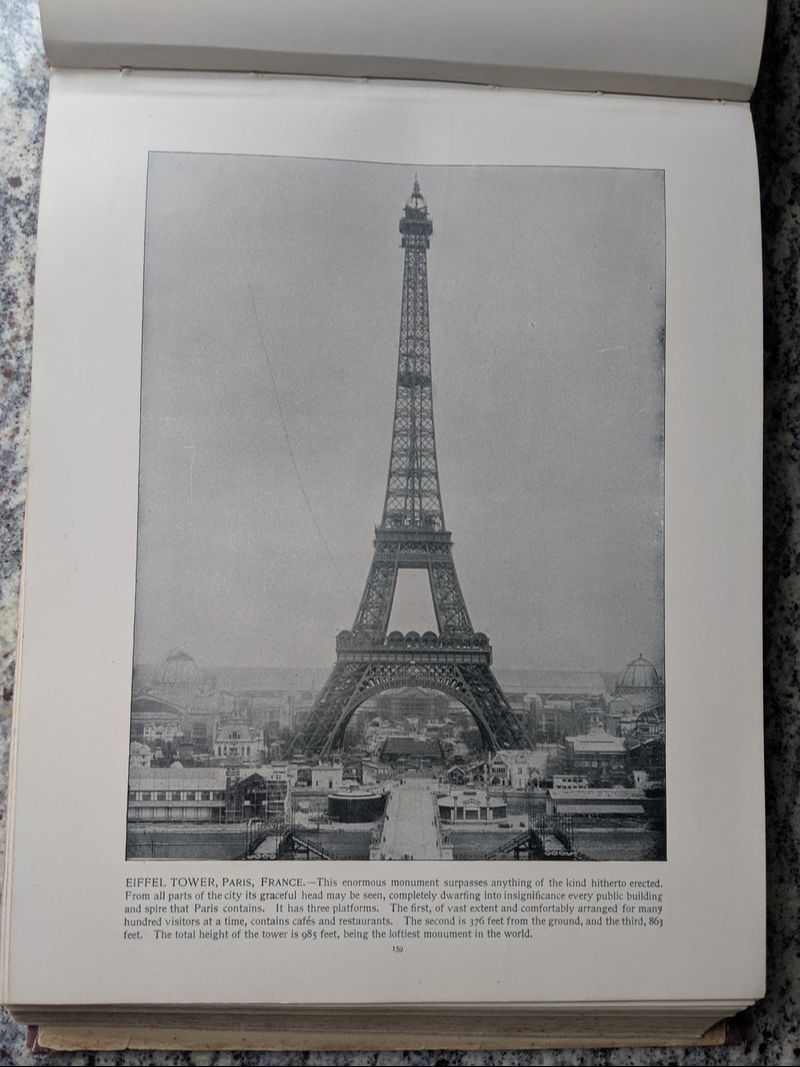
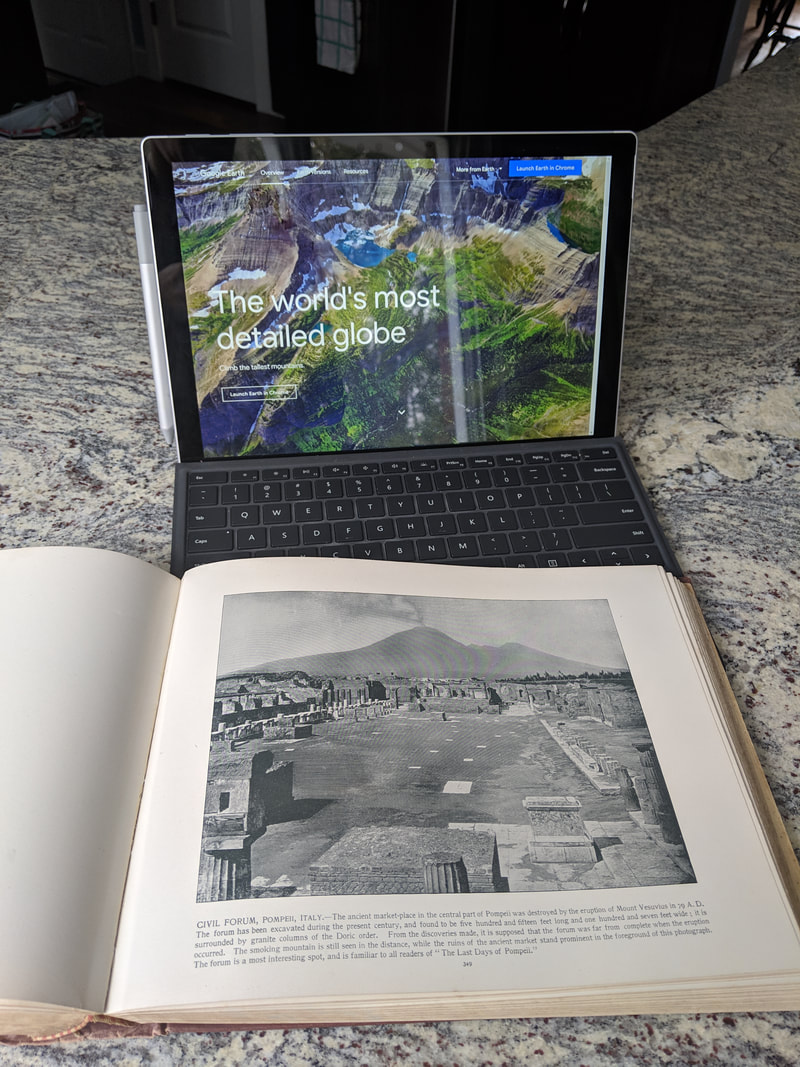
 RSS Feed
RSS Feed